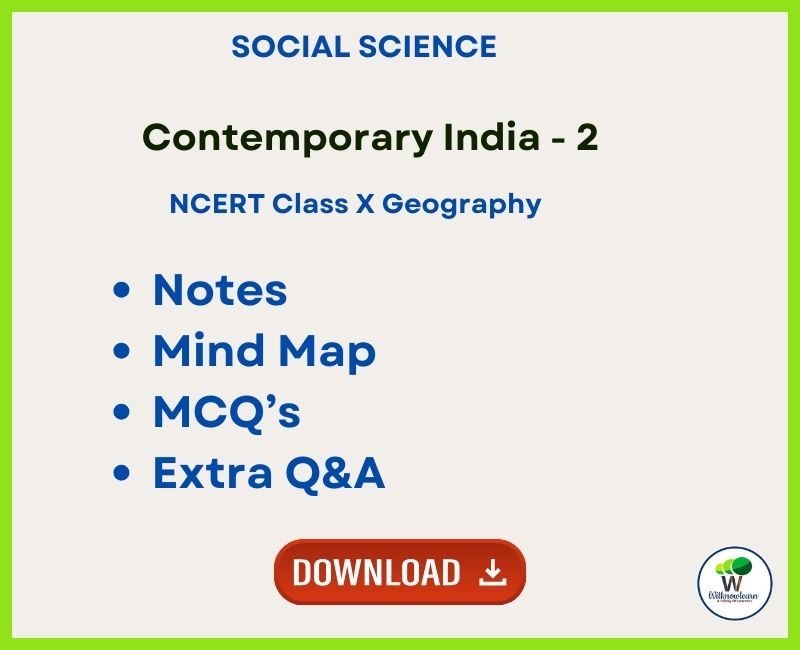Water Resources Class 10 - Notes, Mind Map and MCQ (CBSE)
Welcome to the world of water resources! In this comprehensive guide, we have put together everything you need to ace your Water Resources class 10 exams. From detailed notes to a helpful mind map and MCQs, we have got you covered.
Water resources are an essential topic in the CBSE curriculum, and understanding them is crucial for a well-rounded education. Our thorough notes cover concepts like water scarcity, conservation methods, and various sources of water. They are designed to simplify complex ideas and help you grasp them with ease. To further assist your learning, we have created a mind map that visually represents the interconnectedness of different concepts within water resources.
This handy tool will enable you to make connections and improve your understanding of the subject. Additionally, we have included a set of multiple-choice questions (MCQs) to test your knowledge and reinforce key concepts. These questions are crafted to resemble the ones you will encounter in your exams, ensuring you are well-prepared. Whether you are looking to revise, clarify doubts, or simply expand your knowledge, our Water Resources Class 10 guide will prove to be an invaluable resource. Let's dive in and explore the fascinating world of water resources!
CBSE Class 10 Social Science is a critical subject, and Geography is a key part of it. When studying Class 10 Chapter 3 Geography, students dive into the fascinating topic of Water Resources. This chapter, as outlined in the NCERT Class 10 Geography Chapter 3, provides a comprehensive understanding of water resources, their significance, and management. The Class 10 Geography Notes are essential for grasping the concepts thoroughly and preparing well for the exams.
The Water Resources class 10 chapter delves into various aspects of water as a vital resource. It covers topics like the distribution of water, the importance of rivers and lakes, and the conservation of water resources. In Class 10th, understanding the use and management of Water Resources is crucial for both academic and real-world perspectives. The chapter enlightens students on how water resources are integral to human survival and the sustainability of the planet.
Moreover, the Water Resources class 10 notes are an excellent resource for revision. They break down complex topics into easily understandable segments, making study sessions more productive. These notes often include key points, diagrams, and summaries that aid in quick learning and revision, especially during exam time.
Another valuable tool for students are the Water Resources class 10 MCQs (Multiple Choice Questions). These help in assessing the understanding of the chapter and are a great way to prepare for CBSE exams. The MCQs challenge students to recall and apply what they have learned in a concise format.
For those who prefer a visual study method, the Water Resources class 10 mind map can be very helpful. Mind maps outline the key concepts of the chapter in a visual format, making it easier to remember and recall information. This is particularly useful for visual learners.
Lastly, the Water Resources class 10 extra questions provide an added advantage for students who wish to delve deeper into the subject. These questions often cover areas not directly addressed in the textbook, encouraging students to think critically and explore the topic beyond the standard curriculum.
Overall, the CBSE Class 10 Social Science syllabus, especially the Geography section on Water Resources, is designed to give students a thorough understanding of this vital natural resource and its management, which is essential in today’s world.
Water Resources Class 10
Water Resources in Class 10 Geography is a vital topic that offers students a deep understanding of water, its importance, and the challenges surrounding it. This chapter is part of the CBSE Class 10 Social Science curriculum, focusing on how water is an essential resource for life and the need for its sustainable management.
Students learn about the distribution of water resources globally and in India, the use of water for various purposes, and the over-exploitation leading to water scarcity. The chapter also discusses the conservation methods of water resources, emphasizing the importance of judicious use and efficient management practices. Understanding this chapter helps students recognize the value of water in our lives and the critical need to manage this precious resource responsibly.
Reasons for Scarcity of Water in India
The scarcity of water in India is a growing concern, and understanding its reasons is essential for Class 10 students. Several factors contribute to this scarcity.
Firstly, the uneven distribution of rainfall across the country leads to water scarcity in some areas. Secondly, the over-exploitation of water resources for agricultural, industrial, and domestic purposes has led to a significant decrease in groundwater levels.
Pollution of water bodies through industrial effluents and domestic waste also contributes to the reduction in usable water. Rapid urbanization and inefficient water management practices further exacerbate the problem. Another key reason is the lack of proper storage and conservation infrastructure to capture and utilize the monsoon rains effectively. Understanding these factors in the context of Class 10 Geography helps students grasp the severity of the water crisis in India and the importance of sustainable water management.
Rainwater Harvesting
Rainwater Harvesting is a critical topic in Class 10 Geography, highlighting a sustainable method to mitigate water scarcity. This process involves collecting and storing rainwater for future use.
The chapter educates students on various rainwater harvesting techniques, such as rooftop harvesting, where rainwater from roofs is collected in tanks, and groundwater recharge, where rainwater is directed to recharge groundwater aquifers. This sustainable practice not only provides an alternative source of water but also helps in replenishing groundwater levels.
Rainwater harvesting is crucial in areas with limited water resources and can significantly reduce dependence on external water supplies. By learning about these methods, students gain insights into practical solutions to address water scarcity and understand the importance of individual and community efforts in water conservation.





